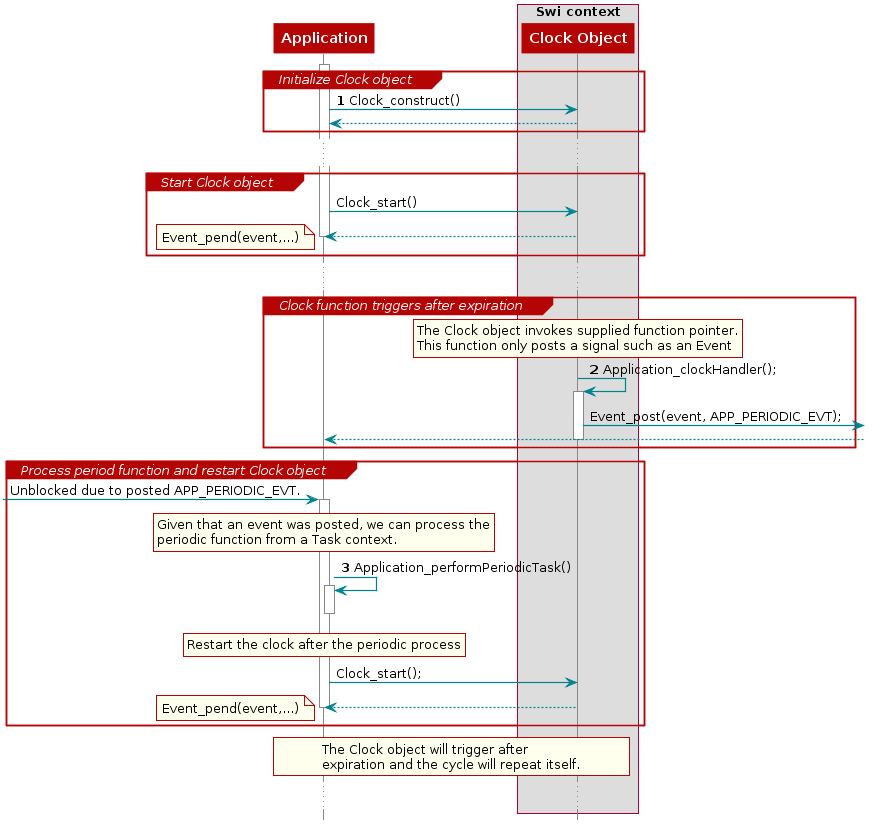Clocks¶
Clock instances are functions that can be scheduled to run after a certain
number of system ticks. Clock instances are either one-shot or periodic. These
instances start immediately upon creation, are configured to start after a
delay, and can be stopped at any time. All clock instances are executed when
they expire in the context of a Swi. The following example shows the
minimum resolution is the TI-RTOS clock tick period set in the TI-RTOS
configuration file (.cfg).
Note
The default TI-RTOS kernel tick period is 1 millisecond. For CC26x2
devices, this is reconfigured in the TI-RTOS configuration file (.cfg):
Clock.tickPeriod = 10;
Each system tick, which is derived from the real-time clock RTC, launches a Clock object that compares the running tick count with the period of each clock to determine if the associated function should run. For higher-resolution timers, TI recommends using a 16-bit hardware timer channel or the sensor controller. See the Clock module in the package ti.sysbios.knl section of the TI-RTOS Kernel User Guide for more information on these functions.
Functional Example¶

Figure 10. Triggering Clock objects¶
Step 1 in Triggering Clock objects constructs the Clock object using the
Clock_construct API. When the application desires, it will then start the
Clock object via the Clock_start() API.
// Clock instances for internal periodic events.
static Clock_Struct periodicClock;
// Create one-shot clocks for internal periodic events.
Clock_construct(&periodicClock, Application_clockHandler,
APP_PERIODIC_EVT_PERIOD, 0, false, APP_PERIODIC_EVT);
Step 2 in Triggering Clock objects, after the Clock object’s timer expired,
it will execute Application_clockHandler() within a Swi context. As this
call cannot be blocked and blocks all Tasks, it is kept short by invoking an
Event_post(APP_PERIODIC_EVT) for post processing in the application task.
static void Application_clockHandler(UArg arg)
{
/* arg is passed in from Clock_construct() */
Event_post(events, arg);
}
Attention
Clock functions must not call blocking kernel APIs or TI-RTOS driver APIs! Executing long routines will impact real-time constraints placed in high priority tasks allocated for wireless protocol stacks!
Step 3 in Triggering Clock objects, the application task is
unblocked due the Event_post(APP_PERIODIC_EVT), where it proceeds to invoke
the Application_performPeriodicTask() function. Afterwards, to
restart the periodic execution of this function, it will restart the
periodicClock Clock object.
if (events & APP_PERIODIC_EVT)
{
// Perform periodic application task
Application_performPeriodicTask();
Clock_Handle hClock = Clock_handle(&periodicClock);
Clock_start(hClock);
}
